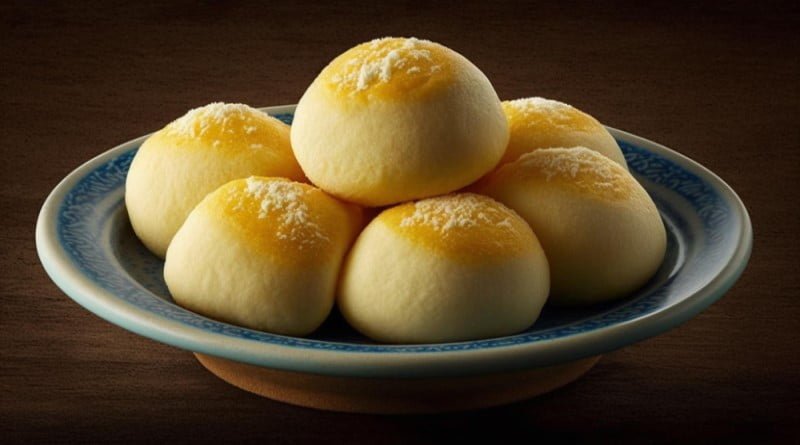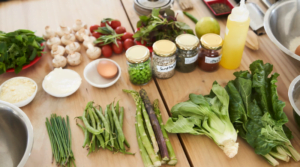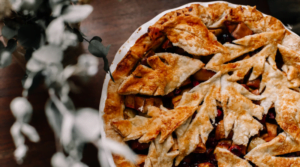
Laddu, a quintessential Indian sweet, crafted from gram flour, sugar, and ghee, showcases a rich blend of flavors often heightened by the infusion of cardamom, nuts, and dried fruits. Typically molded into spherical forms, laddus can also take on shapes such as diamonds or squares, offering a versatile aesthetic appeal.
These delightful treats grace numerous celebrations, but their popularity escalates during festivals and special occasions. Laddus are frequently exchanged as tokens of affection among friends and family. Moreover, they play a pivotal role in traditional Indian weddings and other momentous events.
Historical Significance of Laddu
The historical lineage of the laddu stretches back to ancient India, with references to this delectable sweet traced to the Vedas, the oldest Hindu scriptures. Early renditions of laddus featured rice flour and jaggery as key ingredients, but over the ages, gram flour and sugar were incorporated into the recipe.
Laddus garnered widespread appreciation during the Mughal Empire, where the Mughals’ renowned penchant for sweets found expression in the frequent inclusion of laddus in their lavish feasts. These delectable morsels also enjoyed immense popularity among the common folk, gracing many a domestic celebration.
Varieties of Laddu
Laddus manifest in a multitude of diverse forms, each distinguished by its unique flavor and texture. Notable laddu variants include:
- Motichoor laddu: Comprising fried gram flour balls drenched in sugar syrup, this variant exudes an unparalleled sweetness.
- Besan laddu: A blend of gram flour, sugar, and ghee, often enriched with cardamom and nuts, yielding a distinctive taste.
- Rava laddu: Crafted from semolina, sugar, and ghee, with a tantalizing infusion of cardamom and nuts.
- Coconut laddu: Features grated coconut, sugar, and ghee, adorned with aromatic cardamom and nuts.
- Dry fruit laddu: A medley of assorted dried fruits such as cashews, almonds, and pistachios, harmoniously combined with sugar and ghee, complemented by the fragrance of cardamom.
Nutritional Merits of Laddu
Laddus serve as a valuable reservoir of energy and protein, while also delivering vital vitamins and minerals like iron, calcium, and magnesium. They possess the potential to constitute a wholesome dietary component, albeit in moderation.
Crafting the Perfect Laddu
The art of creating laddus, while seemingly uncomplicated, demands precision and adherence to the recipe for impeccable results.
The following ingredients are essential:
- Gram flour
- Sugar
- Ghee
- Cardamom powder
- Nuts and dried fruits (optional)
Instructions:
- Heat the ghee in a pan over moderate heat.
- Add the gram flour and cook until it assumes a golden hue.
- Incorporate the sugar and cardamom powder, ensuring thorough amalgamation.
- Introduce the nuts and dried fruits, if desired, and blend them seamlessly.
- Remove the pan from the heat and allow the mixture to cool marginally.
- Fashion the concoction into diminutive spheres.
- Serve the laddus immediately or preserve them in an airtight container for later indulgence.
- Recommendations for Crafting Laddus
- Employ premium-quality ingredients for superior results.
- Exercise caution to avoid overcooking the gram flour, which could result in hard laddus.
- Ensure that the mixture has cooled sufficiently before shaping it into balls.
- In cases where the mixture exhibits excessive stickiness, augment the quantity of gram flour.
- Conversely, if the mixture appears overly dry, consider adding a tad more ghee.
- Laddus can be conserved in an airtight receptacle for up to a week.
Laddus, the delightful and nourishing Indian delicacies, are versatile and easy to prepare, making them a fitting choice for diverse occasions. These delectable spheres offer an abundance of energy and protein, complemented by essential vitamins and minerals. To fully savor the delights of laddus, moderation is the key. And for those who seek to infuse novelty into their laddu-making journey, experimenting with diverse spices and fruits can lead to delightful discoveries. For those adhering to a vegan lifestyle, replacing ghee with coconut oil or vegan butter offers a suitable alternative.



